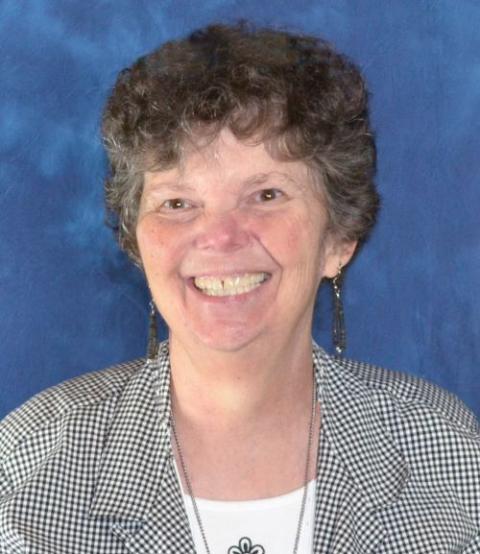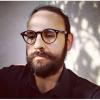
(Pixabay/Joshua Woroniecki)
Sr. Darlene Kawulok, theologian, teacher and spiritual director, has been a St. Joseph of Carondelet sister for 47 years. During COVID-19, she conducted virtual discernment retreats, offering women worldwide an opportunity to gather in prayer. She now accompanies "directees" from all walks of life, primarily via Zoom.
Kawulok spoke to Global Sisters Report about the challenges and virtues of virtual spiritual accompaniment in a post-COVID era. She also shared her thoughts on cosmology, overcoming trauma, working with the LGTBQ community, and how her journey as a religious has led her to the belief that "We are all of God."
GSR: What does your spiritual accompaniment process look like?
Kawulok: A lot of my "directees" come from three sources. I have my bio up on a couple of websites and have been contacted that way. And then there is word of mouth, a personal referral from current directees to people who may be looking for a spiritual director. When I teach courses, I make it known that I'm an academic, a theologian and a spiritual director, so former students have sought me out.
I'd say 95% of what I do is on Zoom. I first ask them, "Tell me about your life. How do you see the divine working in your life? What does your prayer life look like?"
I make it clear that I'm a companion. I don't have a degree in psychology. So, I'm not going to give the same advice a therapist would. I walk with people. I listen to people. I have high intuition, and that helps me pose questions to people about their inner life and their inner desire for freedom and their inner desire for relationship with God. And it's something that I've grown into.

During COVID-19, St. Joseph of Carondelet Sr. Darlene Kawulok conducted virtual discernment retreats, offering women worldwide an opportunity to gather in prayer. She now accompanies "directees" from all walks of life, primarily via Zoom. (Courtesy of Darlene Kawulok)
If you come to me, we talk about your relationship with God. "How do you see yourself in your prayer life? What types of prayer do you feel fulfilled in or curious about? What would you like to look into?"
At the end of our time together, usually around an hour or so, I always say, "Now, what I want you to do is walk away from this experience. Take it to God and pray with this experience of how comfortable you felt sharing your prayer life with me."
It's about your journey with God, with me as a companion. I don't have any expectations if you feel like you want to come back for another visit, or you may feel like you need to say, "No, thank you" to me. I can recommend other spiritual directors or programs you might want to check out.
And then, we start exploring where they might be invited by the Spirit to move into. I provide resources. Every time we meet, we use the resources. They could be books, music, podcasts, etc. My degree is in practical theology, so I encourage my folks to find the divine in their lived reality. It's all a matter of how to touch into the way they pray and then be able to nurture that.
GSR: Does your intuition play a part in deciding how to move forward with an individual?
Kawulok: Sometimes, I'm listening to someone, and something will come into my head, in my heart, and I'll say to myself after a direction session, "Where did that come from?" And I know it's the Spirit. I pray every time I meet with my folks. I pray beforehand to put aside my ego and issues and listen deeply to how the Spirit is working with the folks I encounter.
GSR: Do you work with people who speak other languages?
Kawulok: I have a spiritual direction cohort that is all Spanish-speaking. I have an interpreter, and she and I work together very well, and we've been doing this for about a year. It's kind of like a dance back and forth. She's from Honduras, and I appreciate her very much.
I'm working with Spanish-speaking transgender women. I'm stepping into that world, learning tons and being blessed by these wonderful women.
I'm drawn to walking with the LGBTQ community. I think they're a marginalized population. Marginalized by various denominations of institutional religion and by various institutional systems like health care and education. I feel that they have deep spirituality, and I like being able to walk with them. It's not a population I focus on, but it's a population that I welcome.
GSR: It sounds like the LGBTQ ministry came to you. In other words, you didn't seek it out. It found you.
Kawulok: In my religious community, we are called to move to the margins and serve our dear neighbor. I work at Mount St. Mary's University and come in contact with our students who identify with the LGBTQ community. Over the years, I have provided a brave space for them in my classes. It's a population I find to be very holistic and very diverse. Agency and autonomy are important to me, and to support folks who are searching spiritually in these ways, I appreciate being able to walk with them.
GSR: We're living in a spiritually challenging time. Are there common themes or issues you're seeing nowadays? And how are you addressing them?
Kawulok: The most common issue or experience in a lot of the folks I work with is the healing of trauma. Trauma done by society or family. Trauma done by the institutional church and institutional religion. Trauma done by schools and people we were socialized to think would protect us. Many times, this experience of trauma gets transferred to one's relationship with the divine.
Spiritual direction can be a source of healing for that relationship, damaged by institutions and people. When I think about the number one issue, most of my directees want to deepen their relationship with the divine because they're searching for that unconditional love that is not punitive. It's not condemning. And that's how I approach them.
My starting point with all my directees is, "You are created of God." I used to say, "You are created in the image of God," but because of my prayer and experience, I've shifted that to say, "You are created of God."
Once we embrace that, it's kind of like multilanes on a freeway. Directees can go any way they want. I have some people who are pursuing spirituality in books. Some are finding this created reality in art and music. Some are finding it in Scripture. And some are finding it in social justice and empowerment or in the gifts they were told to squish or lay dormant.
Advertisement
GSR: How did you come to that realization?
Kawulok: If I'm created in the image of God, there is still something out there preventing me from fully becoming one with God. I started reading Ilia Delio, a theologian who writes extensively in cosmology and spirituality. She's a Franciscan sister, so her spirituality is very creation-centered. When I started reading her book called The Emergent Christ, I was blessed with an insight that my growth and spirituality throughout my lifetime is to realize that the divine and I are one. I am created of the divine, not in the image of the divine, but of the divine.
My whole life is to become aware of that and let go of the ego that prevents me from accepting that grace and reality, allowing the Spirit to fill me with the virtues and the understanding that my creative power was created of the divine. And that's what I encourage people to see. There's no separation other than my ego preventing me from being fully assumed into the divine.
GSR: Are people who come to you already spiritually inclined and open to finding God in their lives? And if not, how do you convince them they are of God?
Kawulok: It's important to break down a binary understanding of good or bad and see the wholeness of life. When I'm talking with someone, I always listen to how they see the divine in the elements of their lives or through the experiences of their lives. And I'll repeat to them what I heard and say, "Do you realize this is an intimate, holy moment between you and the divine? Nobody has experienced this moment except you."
As they allow that to sit inside them, I see less and less binary, like good or bad, either-or thinking, and a more holistic understanding that everything is connected.
GSR: You're helping people break down the barrier that makes them feel separate and in their little universe with their thoughts, feelings and issues. However, they're not alone and are of God, who is waiting for them and loves them.
Kawulok: Yes, that's exactly what it is. Being a Sister of St. Joseph, that's what we nurture and try to live. As Sisters of St. Joseph, we focus on the phrase, "All are one." When you pull that apart, there is no separation between me and created reality, which is the created reality that exists in the divine.
Many years ago, I read a phrase on a plaque, "You carry within you the gases of the stars."
That stuck with me throughout my entire life. Once I started studying and reading about the cosmological reality of the divine and the risen Christ, it resonated and began to go deeper and deeper.
I put it in conversational language for people to reflect upon or in a language people can take to prayer and send it off to my folks with a particular issue or curiosity they want to explore.
And so, it's a combination of being an educator, theologian and a spiritual director all in one.
GSR: What does this ministry feel like, and how has it affected your spiritual journey as a religious? Has it transformed you?
Kawulok: Stepping into people's lives and being in this privileged position has enriched my spirituality as a woman and a vowed religious woman. Being white and educated, I live in a very privileged position. In many ways, I am ignorant of an emerging world I have no idea about.
I step into the lives of people who are BIPOC, LGBTQ, 20, 30 and 40 years younger than me and have a different reality of life. It helps me realize my position and be grateful, but I also say, "How am I walking with and empowering others to be their best selves?" That's been a very enriching experience.
I've been in education all my life. I started as a second-grade teacher, and now I'm working with nursing students moving into clinical settings in hospitals. By working with them in bioethics and social justice, I explore many social issues from the lens of "what it means to be human." I work with people who are discerning about many things in life. I'm invited to learn from them about experiences and realities that are not my own.
It's just a rich life, and that's what I'm doing. I'm living a rich life.
GSR: Do you have any closing thoughts for anyone yearning for God or considering spiritual accompaniment? What would you say to that person?
Kawulok: Don't be afraid. Think about how many times we hear Jesus say in the Gospels, "Do not be afraid." The divine is always opening doors for us. I always say to my directees, "The divine only wants your freedom, and it's not taking your freedom away: it's allowing you to realize your power in your humanity."
So, explore and be curious. Spirituality is not about institutional religion. It's all about relationship with the divine, self, others and creation, which is very different.
GSR: Can you share an example of someone you've worked with who transformed their life or was awe-inspiring?
Kawulok: All my directees are on their journey. I'm in awe at the amount of internal healing of trauma and affirmation of their goodness and their realization of their power to heal the world. Some of them are going through internal healing of their inner child.
I feel honored to be in the presence of a human being striving to be the best they can be at this moment in time. For them to come to that realization where they can say, "I am a good person. I am created of God," is lovely. That's important for me, and it's a privilege to be there with them in that relationship.





